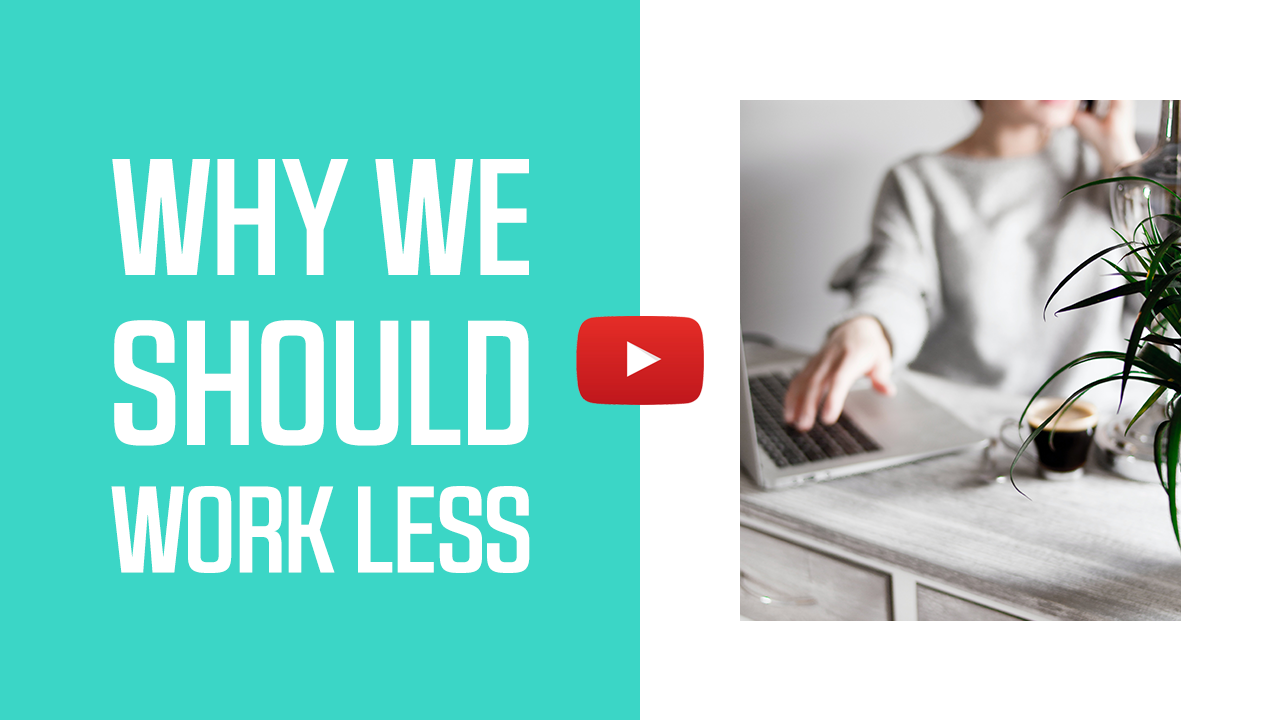When you are working hard, maybe getting into a flow state, or even under stress many of these feel good chemicals are released. So imagine you’re working long hours and feeling some stress. This is the same thing that happens when you’re feeling stress, worry, or fear at other times. The HPA (hypothalamus pituitary adrenal axis) activates a series of reactions. The primary one is that cortisol is released. Cortisol is a really helpful chemical for survival. But what happens when you’re not in survival mode? Read more to learn how working less plays a significant biological role.
How Cortisol Works
When cortisol starts doing its thing during stress, sugars in the bloodstream increase, which helps the brain use glucose to make rapid decisions. As well, this helps with potential tissue repair. In a publication from the Mayo Clinic, they say it this way, “Cortisol also curbs functions that would be nonessential or detrimental in a fight-or-flight situation.” When released in an emergency or even within a flow state, cortisol and the waterfall of other chemicals can be extremely helpful for survival.
Effect of Cortisol
But, like anything, prolonged exposure leads to negative side effects. For example, learning and creativity weaken because of the chemical focus on survival. In the midst of a stressful emergency, it’s about getting away safely not self-actualization, so the brain de-prioritizes those functions. Also, over time elevated cortisol levels lead to the brain reducing in size, less social interaction abilities, and a reduction in judgment. Fewer cells are made and memory decreases.
How this is related to working less
Activities that help us slow down, optimize the brain to actually be more creative, productive, and smart. So why would we overwork, when we can do the same work or better in less time? You may be wondering what activity that can help with this: working less. As we can see, working too many hours can result in hormones being realized almost continuously. Over time, this isn’t good for our health. A simple change that can be made is to talk to your boss about your workload, separating your work space from your living space, and find ways to enjoy your time outside of work. Sure, you love your job. But, it’s worth exploring the satisfaction you feel in other areas of your life that are directly impacted by your job.
Joseph R. Sanok, MA, LLP, LPC, NCC
 Joe Sanok is an ambitious results expert. He is a private practice business consultant and counselor that helps small businesses and counselors in private practice to increase revenue and have more fun! He helps owners with website design, vision, growth, and using their time to create income through being a private practice consultant. Joe was frustrated with his lack of business and marketing skills when he left graduate school. He loved helping people through counseling but felt that often people couldn’t find him. Over the past few years, he has grown his skills, income, and ability to lead others, while still maintaining an active private practice in Traverse City, MI. To link to Joe’s Google+
Joe Sanok is an ambitious results expert. He is a private practice business consultant and counselor that helps small businesses and counselors in private practice to increase revenue and have more fun! He helps owners with website design, vision, growth, and using their time to create income through being a private practice consultant. Joe was frustrated with his lack of business and marketing skills when he left graduate school. He loved helping people through counseling but felt that often people couldn’t find him. Over the past few years, he has grown his skills, income, and ability to lead others, while still maintaining an active private practice in Traverse City, MI. To link to Joe’s Google+

